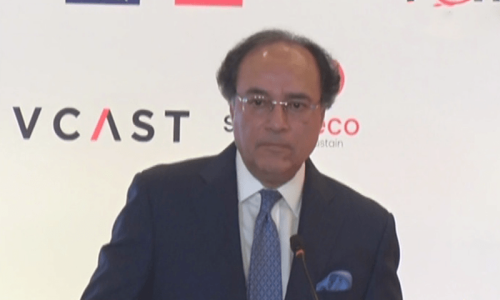ISLAMABAD: Maulana Samiul Haq, a Pakistani cleric with close ties to the Taliban said Wednesday he would no longer act as a government-backed peace broker with the militants after airstrikes killed 40 in North Waziristan tribal agency bordering Afghanistan.
Haq, who heads the hardline Darul Uloom Haqqania seminary and is often referred to as the “Father of the Taliban,” was given the task of initiating peace talks with the Pakistani Taliban in December by Prime Minister Nawaz Sharif.
Sharif's government announced its talks policy in September and began making preliminary contact with the Taliban's leadership, but the initiative ended after a US drone strike killed then-Taliban leader Hakimullah Mehsud in November.
“The government does not seem serious and concerned. I had requested them to avoid a military operation and use of force but yesterday it started bombing in North Waziristan and tribal areas,” Haq, who is also chief of his own faction of the religious Jamiat Ulema-i-Islam (JUI-S) party, said in a statement sent to AFP.
The air strikes in the North Waziristan and Khyber tribal regions on Tuesday were an apparent retaliation for two major Taliban attacks on military targets in as many days. But security officials said the strikes were carried out on the basis of intelligence reports.
Samiul Haq, whose seminary has awarded Afghan Taliban leader Mullah Omar an honorary doctorate, said more fighting was not the answer.
“Both sides (Taliban and government) are in a state of war. Innocent citizens and soldiers are dying,” he said in the statement.
“A military operation is not the answer: we should instead put all our passion into the process of talks.”
“In such a situation I want to separate myself from this bloody tragedy,” he added.
The JUI-S chief said Sharif sought his help in initiating peace talks and he received positive signals after contacting the Taliban leadership, but “the lack of seriousness on behalf of the government” forced him to quit the process.
He also sent AFP a copy of a letter he wrote to Sharif, complaining that multiple calls and efforts to reach the premier had gone unanswered.
The TTP have been waging a bloody campaign of gun and bomb attacks against the Pakistani state since 2007, often on military targets.
The two high-profile attacks on Sunday and Monday left at least 39 dead, marking a bloody return for the militants after a period of relative quiet following Mehsud's death and the installation of hardline cleric Maulana Fazlullah as his replacement.












































